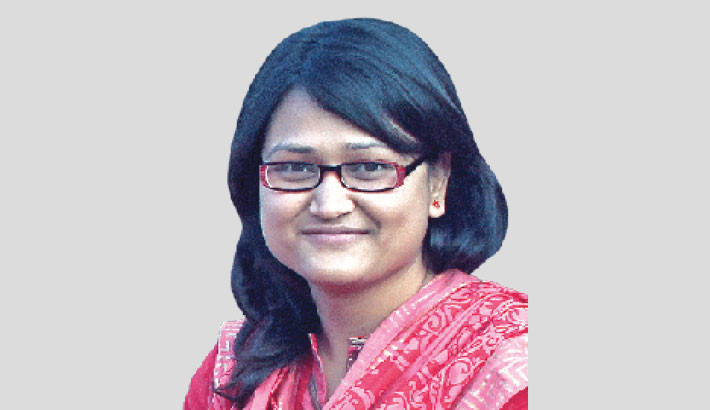
“Do not go gentle into that good night,……Rage, rage against the dying of the light.”
— Dylan Thomas
Bangladesh is at a tipping point, grappling with a disturbing rise in sexual violence that has exposed deep flaws in its legal system, social structures and education system. The recent brutal rape and murder of an eight-year-old girl in Magura district during Ramadan sent shockwaves through the country, sparking protests and reigniting calls for justice. Yet, despite public outrage, such heinous crimes continue at an alarming rate, with over five thousand children raped in the past decade—a statistic that only scratches the surface, given the high rate of underreporting. This crisis is not just about failed law enforcement or judicial loopholes; it is a symptom of a much deeper issue—a lack of awareness and education about fundamental human rights. To truly break this cycle of violence, Bangladesh must integrate Human Rights Education (HRE) into its national curriculum, equipping its people—especially the next generation—with the knowledge, values and skills to prevent, report and combat sexual violence effectively. Without it, justice will remain an elusive dream for countless victims, and society will continue to normalise the unspeakable.
The Magura tragedy is a heart-breaking yet painfully familiar story in Bangladesh. The victim, a child visiting her sister’s home during Ramadan, was kidnapped, assaulted and left with fatal injuries. Her story joins the countless others of women and children who suffer in silence due to a deeply ingrained culture of impunity, victim-blaming and social stigma. Even when survivors or their families seek justice, they often face intimidation, lengthy legal battles and public shaming—deterring many from even coming forward. The outrage following this incident was intense, but like past cases, the risk remains that public memory will fade, and the cycle will continue unless systemic changes are made. Why does this keep happening? Well, it is because Bangladeshi society lacks structured education on gender equality, bodily autonomy, consent and legal rights. Schools, which should shape the future generations, do not teach young boys to respect women or understand the consequences of sexual violence. They do not teach girls about their rights, the importance of consent, or how to seek help without fear. Without formal education on these issues, harmful societal norms flourish and sexual violence persists.
Human Rights Education is not just about memorising laws or conventions; it is about creating a society where respect, dignity and justice are ingrained values. In countries where HRE is part of the curriculum, there is a documented shift in attitudes toward gender roles, violence prevention and legal empowerment. If Bangladesh introduces age-appropriate education on human rights, sexual consent and personal safety, it can prevent crimes before they happen. Teaching young children what constitutes abuse and how to report it can empower victims and bystanders alike. For teenagers, discussions on toxic masculinity, respect and gender roles can challenge the harmful perceptions that normalise aggression and entitlement. At the university level, courses on legal protections, digital safety and women’s rights can further equip students to become advocates and allies in the fight against gender-based violence. The long-term effect? A generation that does not tolerate injustice, that recognises abuse and that holds perpetrators accountable.
However, implementing HRE in Bangladesh will require overcoming significant challenges, including cultural resistance, lack of trained educators and institutional apathy. Many conservative voices resist discussions about gender equality and sexual rights, arguing that these subjects are “Western influences” or “against tradition.” Yet, protecting children from violence is not a foreign concept—it is a human obligation. Moreover, Bangladesh already has progressive laws on paper, such as the Women and Children Repression Prevention Act, but laws alone do not change behaviour—education does. Trained educators are also crucial to delivering sensitive yet essential lessons in a culturally appropriate way, ensuring that discussions on rights and respect do not alienate communities but instead empower them. The government must also commit to textbook reform, teacher training and nationwide awareness campaigns that reinforce human rights education beyond the classroom—in families, workplaces and policy-making spaces.
Bangladesh cannot afford to slack off in this regard. Every day that passes without formal education on human rights and gender equality is another day when more girls like the one in Magura suffer. Integrating HRE into Bangladesh’s schools is not just an academic exercise; it is a matter of life and death. No child should grow up fearing that their cries for help will go unheard. No parent should live with the agony of losing a daughter to a crime that society refuses to prevent. If Bangladesh is serious about ending sexual violence, it must start where all lasting change begins—education. Only then can it build a future where every individual—regardless of gender—can live free from fear, empowered by knowledge and protected by a society that values human dignity above all else. The time for debate is over. The time for action is now.
_____________________________________
The writer is an Assistant Professor in the Department of Philosophy at IUBAT and pursuing a Masters in Human Rights and Multiculturalism at University of South Eastern Norway

